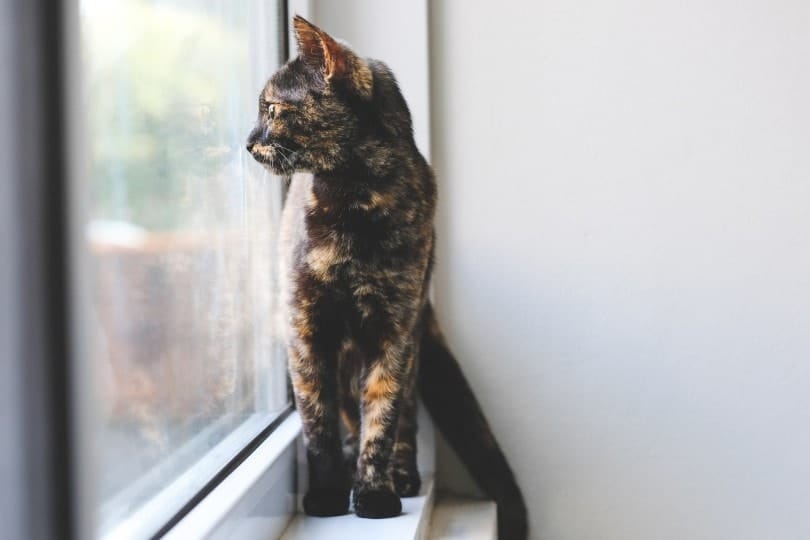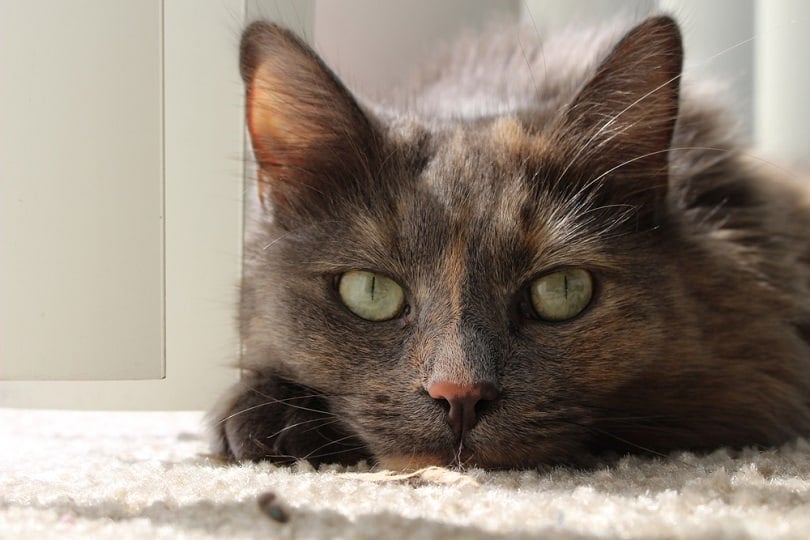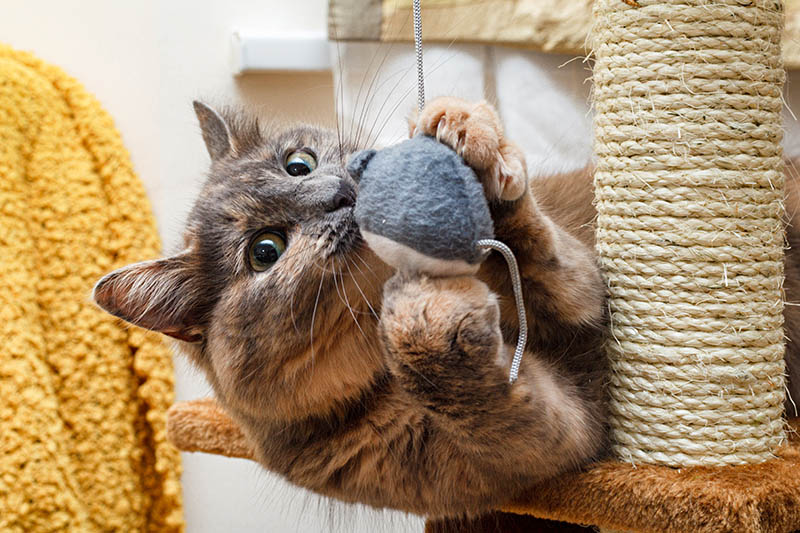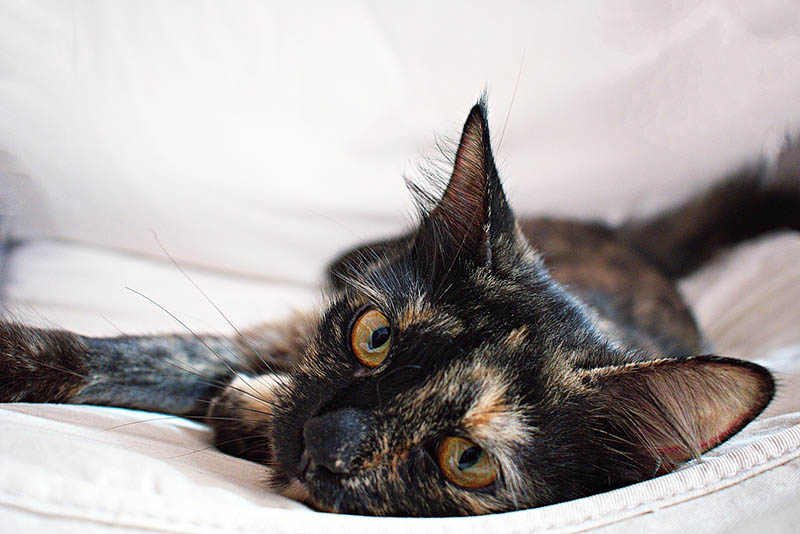A tortoiseshell cat isn’t a separate breed. Tortoiseshell is a color that can appear among quite a few cat breeds. This gorgeous pattern has long been popular. However, when bringing home any cat, you need to know what health problems to look out for with your new companion. Health concerns are associated not only with the breeds themselves but also sometimes, with the colors of their fur.
Some cats are predisposed to have health problems due to their genetics. While the tortoiseshell cat doesn’t have many associated health problems, there are a few that you’ll want to watch out for.
The 3 Common Health Issues in Tortoiseshell Cats
1. Klinefelter Syndrome
One of the biggest yet rare conditions you have to watch for with tortoiseshell cats is Klinefelter Syndrome. This condition only affects males born with XXY chromosomes. Healthy males should only have one X chromosome. Cats with the syndrome are sterile and have shorter lifespans.
Although rare, the condition puts the male at risk for developing behavioral issues, diabetes, heart issues, developmental issues, increased body fat, and fragile bones.

2. Obesity
Obesity is common in many cat breeds, and the tortoiseshell cat is no exception. It can also lead to other health issues, such as diabetes and heart-related problems. It’s best to keep a close eye on your tortoiseshell cat and feed them only high-quality food.
It’s also best not to allow free feeding with your tortie, but instead, feed them twice a day at specific times for the best results. Treats are okay to give your cat, but only in moderation and not in place of a normal meal.
3. Breed-Related Problems
Since tortoiseshell isn’t a breed, but rather a color that spans many species, the health problems your cat is vulnerable to will depend on their genes.
Eye problems, obesity, and heart issues are a few of the problems you’ll want to look for with your tortie. Here’s a list of a few breeds that can have a tortoiseshell coat pattern:
Each breed has their own set of health concerns that you need to watch out for. If you notice any troubling signs with your tortie, it’s best to contact your vet for an appointment. They can diagnose and set up a course of treatment for your little friend.

How to Take Care of Your Tortie
As with any breed, there are several things you can do to take care of your tortie. Make sure you feed them a balanced diet, and avoid overfeeding them because tortoiseshell cats can be prone to obesity.
It’s also essential to take your cat to the vet for regular checkups so any problems with your cat’s genetics can be discovered early on and hopefully treated. In fact, you might want to ask your vet about the specific breed your tortie is so they can tell you what to look for regarding health conditions. DNA testing is not cheap, but you can spend less on a commercial testing kit. However, the take-home kit is not as accurate as a test from your vet.

Conclusion
Tortoiseshell is not a specific breed, and most of the health problems of a tortoiseshell cat are related to their parents’ lineage. That said, one particular health issue, Klinefelter’s Syndrome, is rare, but you still need to watch out for it if you have a male tortoiseshell cat. If you think that they have it, get the cat to your vet right away.
Tortoiseshell cats are adorable, fun, loving, loyal, and popular, so if you’re considering adopting one as a pet, you’ll be in good company.
Featured Image Credit: Didi S, Pixabay












